Click on images to enlarge
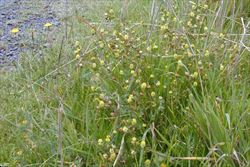
infestation (Photo: Forest and Kim Starr, USGS)
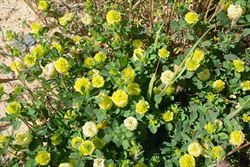
habit (Photo: Sheldon Navie)
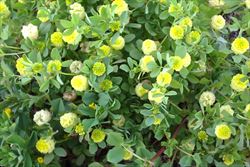
habit (Photo: Sheldon Navie)
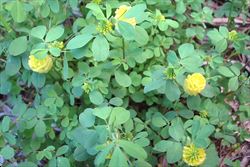
leaves and flower clusters (Photo: Sheldon Navie)
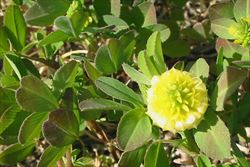
close-up of leaves, each with three finely toothed leaflets, and flower cluster (Photo: Sheldon Navie)

young flower cluster and upper leaves (Photo: Forest and Kim Starr, USGS)
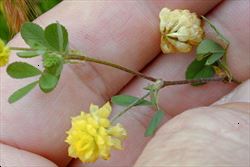
close-up of stem, flower cluster and fruit (Photo: Forest and Kim Starr, USGS)
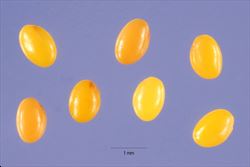
close-up of seeds (Photo: Steve Hurst at USDA PLANTS Database)
Scientific Name
Trifolium campestre Schreb.
Synonyms
Trifolium campestre Schreb. var. campestre
Family
Fabaceae (Queensland, the ACT, Victoria, Tasmania, and the Northern Territory)Fabaceae: sub-family Faboideae (New South Wales)Leguminosae (South Australia)Papilionaceae (Western Australia)
Common Names
field clover, field hop-clover, hop clover, hop trefoil, large hop clover, larger hop clover, lesser yellow trefoil, low clover, low hop clover, low hop trefoil, pinnate hop clover, smaller hop clover, yellow clover
Origin
Native to northern Africa, the Azores, the Madeira Islands, the Canary Islands, Europe, the middle-east and western Asia.
Naturalised Distribution
Widely naturalised in southern and eastern Australia (i.e. in south-eastern and central Queensland, New South Wales, the ACT, Victoria, Tasamnia, many parts of South Australia, and the southern and western parts of Western Australia). Also naturalised on Norfolk Island.
Widely naturalised overseas, including in North America (i.e. Canada and the USA).
Notes
Hop clover (Trifolium campestre) is regarded as an environmental weed in Western Australia and Victoria.

